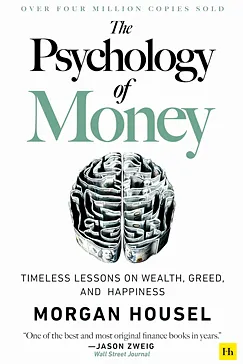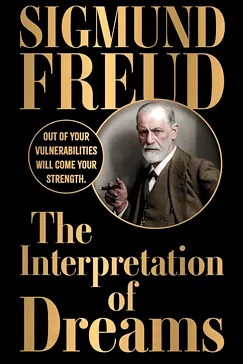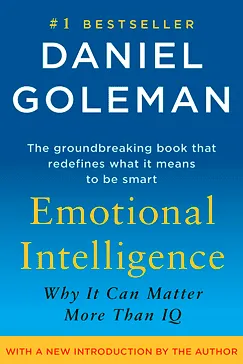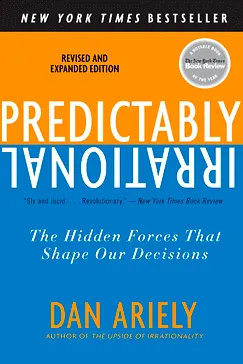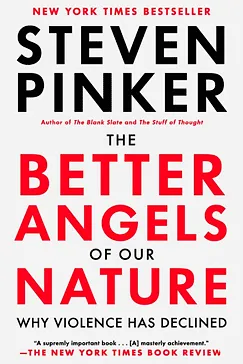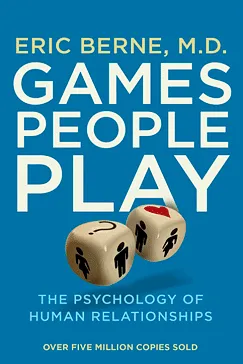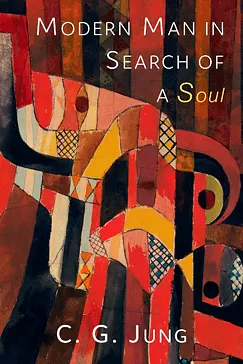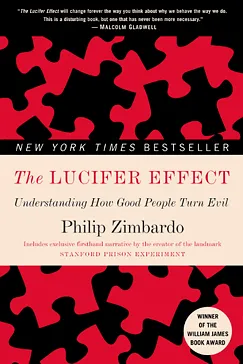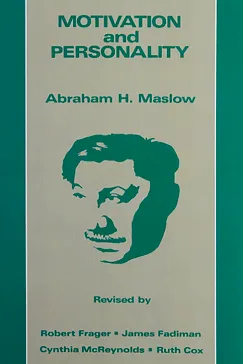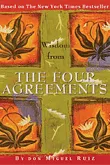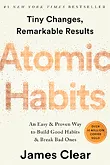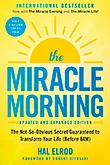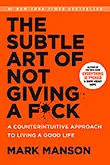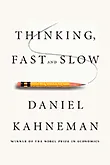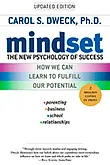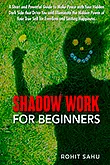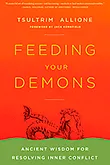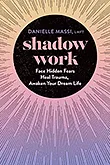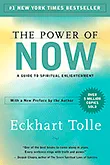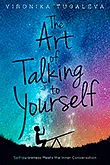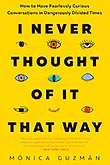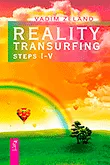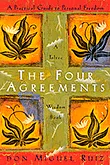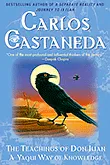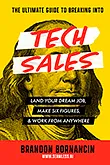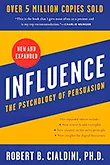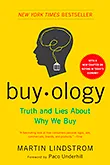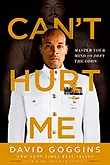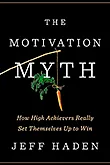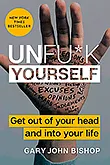Explore the depths of the human mind with our carefully chosen list of the best psychology books of all time.
Man's Search for Meaning
This is a profound work by a psychiatrist who survived the Holocaust and one of the truly great books concerning human suffering and the ability to endure it. It is about meaning in life under the most brutal conditions, based on his experience in a Nazi concentration camp. He introduces to us logotherapy – a psychotherapy that emphasizes the will to find meaning as the primary motivational force in human life. This book lets one get an understanding of how a man may behave with dignity against the adversities of life and that he may find a meaning in his life even where there is no hope. It's a powerful testament to the human spirit's capacity to transcend unimaginable adversity.Thinking, Fast and Slow
In this highly insightful exploration, the author guides the reader through the two systems that drive the way we think, from fast, intuitive, and emotional System 1 to slow, more deliberative, and more logical System 2. The book gives a series of examples, which are very thought-provoking, that could help an individual gain a sense of how our biases affect us and how we are less rational than one would imagine. It provokes the reader to think in considering the complexities of how man thinks, and provides some very practical insights in how man might make better decisions in his personal and professional life.The Psychology of Money
This book talks about how our personal beliefs and behaviors shape our decisions on money. It is said that knowing money is not mathematics but is closely knitted to human psychology. Armed with witty stories and stories, the author explains why we make such irrational decisions when it comes to money and how to make better ones. It speaks of savings, of the role that luck plays in the acquisition of wealth, and the importance of taking risks, but more importantly, the critical input of thinking long term in the accumulation of wealth. This guide really does offer something new in the context of perspective on wealth, success, and happiness, so it is a must-read for any person battling to better their financial mindset.The Interpretation of Dreams
In this groundbreaking work, Freud lays out his theory according to which dreams are a revelation of our deepest wishes and anxieties, usually rooted in experiences from our childhood. He says that an understanding of our dreams can offer us an entrance into our unconscious mind, thus enabling us to see what our psychological state of being may be. Freud demonstrates, through a series of case studies, how dream analysis can prove to be such a powerful instrument in revealing the hidden motivations behind our thoughts and behaviors. The book lays the foundations for psychoanalytic theory, which has been so long influential in the field of psychology.Influence
In an utterly fascinating investigation, the author delves into the reasons why people say "yes" and how to apply these understandings in countless different situations. The six common principles of persuasion are the following: reciprocity, commitment and consistency, social proof, authority, liking, and scarcity. The book gives practical insights and strategies of how one can be a skilled persuader, yet it does alert a reader to how such techniques may be used in a way against them. This indispensable guide amplifies personal influence, while providing tools for defending against manipulation in everyday life.The Chimp Paradox
Recommended by: Steven BartlettThis critical thinking ability will make all the difference in success or struggle as to breaking free from the Cliques. It's about the fight between logic and emotion, how to unlock the power of the mind and manage it, so that a person can live a happier and more successful life. The definition of the term "chimp" as the emotional part of the brain and ways in which one can manage the emotional aspect in building better personal and professional relationships.The Coddling of the American Mind
"In The Coddling of the American Mind," authors Greg Lukianoff and Jonathan Haidt chart how current cultural trends like these are undermining the mental resilience of young Americans. This is what they say: overprotection, fear of offense, and polarization of society are leading to increased fragility, stress, and depression in students. The implications of these trends are thoroughly investigated in the book in regard to campus and the wider society, with the attempt to bring us back to the core ideals of free speech, open debate, and the significance of encountering challenging ideas in the development of tougher, more flexible individuals.Emotional Intelligence
Recommended by: Robert KiyosakiIn this book, the author enlightens the importance of emotional intelligence, indicating how it is as much important as one's IQ to succeed in life. He portrays emotional intelligence as involving understanding and management of one's feelings, harnessing the power of emotions, the ability to empathize with other people, and managing social complexity. He proves that these are, for sure, skills that can be learned and developed through efficient strategies of enhancing awareness and relations with other people. He modifies the traditional point of view on intellect by showing that emotional skills are of the utmost importance in personal and professional success.Predictably Irrational
Recommended by: Tom BilyeuIn "Predictably Irrational," Dan Ariely investigates the covert forces directing our decisions. He exposes that, unlike common opinion, most of the time our choices do not come from rational thinking. Through a series of eye-opening experiments and engrossing stories, Ariely explains how our irrational behavior is thoroughly predictable, guided by expectations, emotions, social norms, and other invisible forces. This book argues against the conventional economic theory that postulates the human being as a rational animal and gives instead an amazing insight into the real nature of human decisions. It is an interesting read for anyone who is interested in understanding human behavior complexities.The Righteous Mind
Expose the mysteries of why people are divided by politics and religion. The storyline exposes how moral judgments come not from logic but from the gut, and how reasoning comes afterward in the attempt to justify those intuitions. It raises a radical theory that our moral values rest on six critical pillars that will differ from one culture to another, creating our political, religious and ideological lives. In appreciating this, we can appreciate how to communicate superiorly across moral and political crevasses. It is a deep dive into human nature and morality, hence giving insights into how more cooperative and understanding societies can be nurtured.The Better Angels of Our Nature
It is a very engaging book that argues that violence has declined through the centuries. The author presents a formidable case, based upon an analysis of history, psychology, and the data, to make the case that the human condition has improved, and not worsened, due to the forces of civilization and enlightenment. This book looks at what has been creating this positive trend and pins it down to empathy, self-control, and moral sense. It changes common perceptions about the state of the world, giving one hope and explaining how society can continue to move forward to peace.Loving What Is
Recommended by: Hal Elrod, Chris WilliamsonIn this brilliant piece, the author introduces a strong way of inquiry known as "The Work." The approach makes people ask them questions, for instance, about their thoughts and system of belief such as how they bring out suffering. The author is out to guide readers to find out what indeed reality is all about using the four simple questions. In doing this, the author manages to help individuals find freedom from pain and hence makes it possible for them to find peace in life. This book offers practical tools for anyone looking to live a more joyful and harmonious life.Flow
It introduces the concept of "flow" into the discussion, which entails the state of undistracted attention or enjoyment that a person experiences during an activity. The author sees 'flow' as the secret to happiness and fulfillment. Readers get to learn how they can integrate flow in their life so that even things that would otherwise seem monotonous become a source of joy and satisfaction. Using interesting examples and very practical advice, It's a book about how to live a richer, more engaged life through harnessing the power of focused attention.Games People Play
In this incisive investigation, the author delves deep into the psychology behind everyday interactions and games that people play with one another. Through a series of enticing examples, it shows how these games – often unconscious – determine the dynamics of our relationships and social encounters. The book provides a new lens through which to see human behavior and tools to notice the patterns – along with suggestions on how to engage with others more authentically. This will be quite an interesting book for anyone interested in social psychology – details and easily overlooked subtleties of human communication.Modern Man in Search of a Soul
Recommended by: Jordan PetersonThe work is dedicated to an in-depth study of human psychology and is presented in the form of an anthology of essays, combining the features of psychology with the elements of philosophy and spirituality. The book provides many understandings of modern challenges and problems - he considers them to be failures to attribute the sense to the complex course of the events taking place in the world. It comprises the importance of dreams, the importance of psychotherapy, and the relation of the individual with the unconscious. In looking at the intersection of Eastern and Western thought, it forces the reader to understand himself much better and to take on the demands of the outside world yet the need for self-growth and self-discovery.The Lucifer Effect
It will reveal the dark side of human nature through the screen of the Stanford Prison Experiment, by which ordinary people are shown to perform the most atrocious of acts under certain conditions. This book exposes psychological mechanisms that yield evil, from conformity and obedience to authority, to the naturalness of situational and systemic forces. It demands from the readers to ponder the very nature of evil and the ability to bring change in each one of us. It plumbs the potential for cruelty embedded in society's structures to a depth where the importance of personal responsibility and ethical leadership, in the prevention of harm, is laid bare through compelling evidence and analysis.Motivation and Personality
In this probing book, Abraham H. Maslow presents the intricacies of human motivations and personality. He introduces the hierarchy of needs, claiming that individuals are motivated by unsatisfied needs, and moreover, certain lower needs must be satisfied before higher ones. Maslow argues that right at the apex of this hierarchy, therefore, is self-actualization: the realization of one's potentials and the pursuit of personal growth, creativity, and fulfillment. In this respect, he shows a new look towards human behavior, bringing in the spotlight the importance of personal growth and psychological health. This book represents a basic text for those who want to understand the human motivational process and their search for self-actualization.
List of top rated Psychology books everyone should read. Best sellers only!


